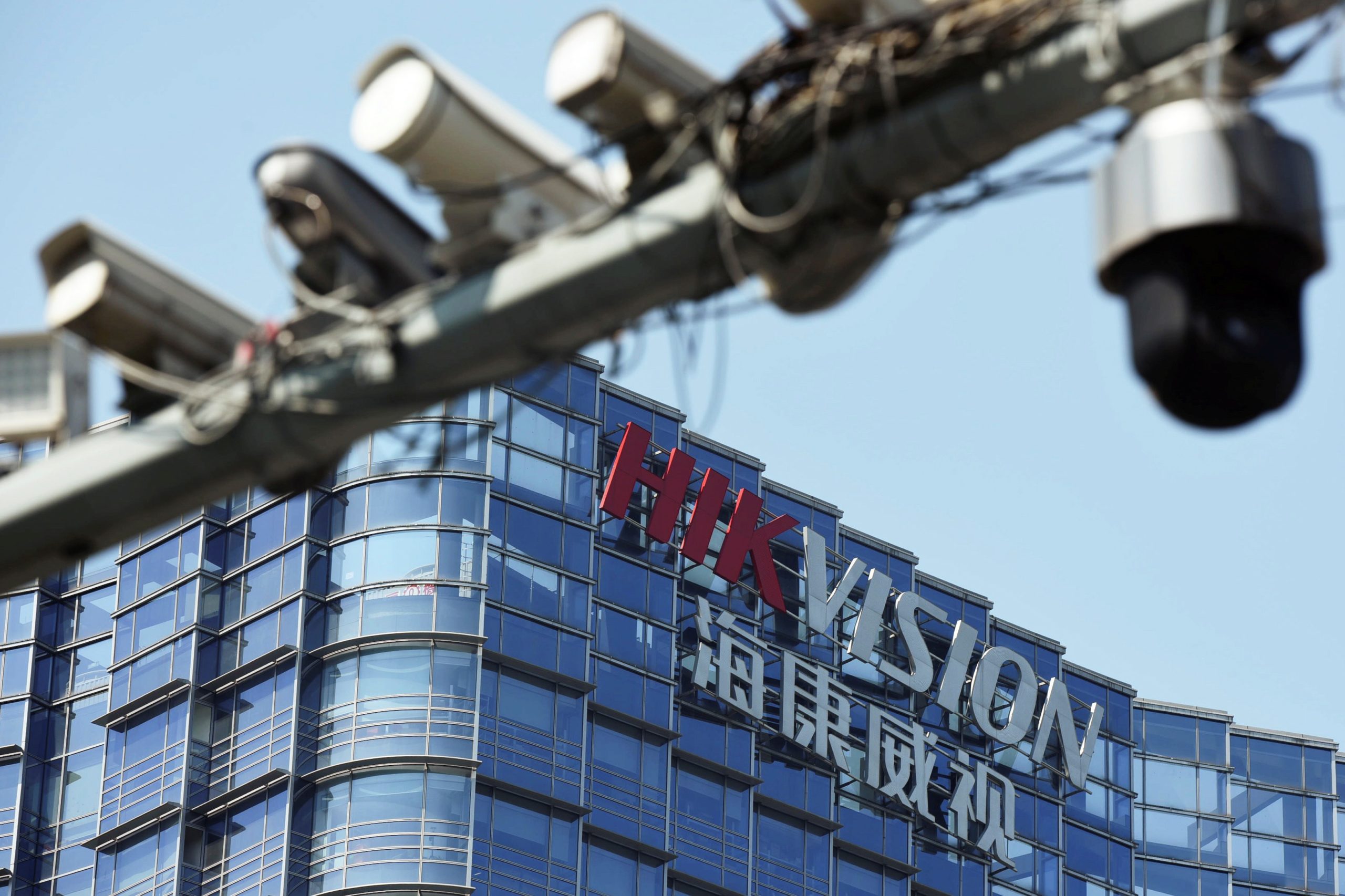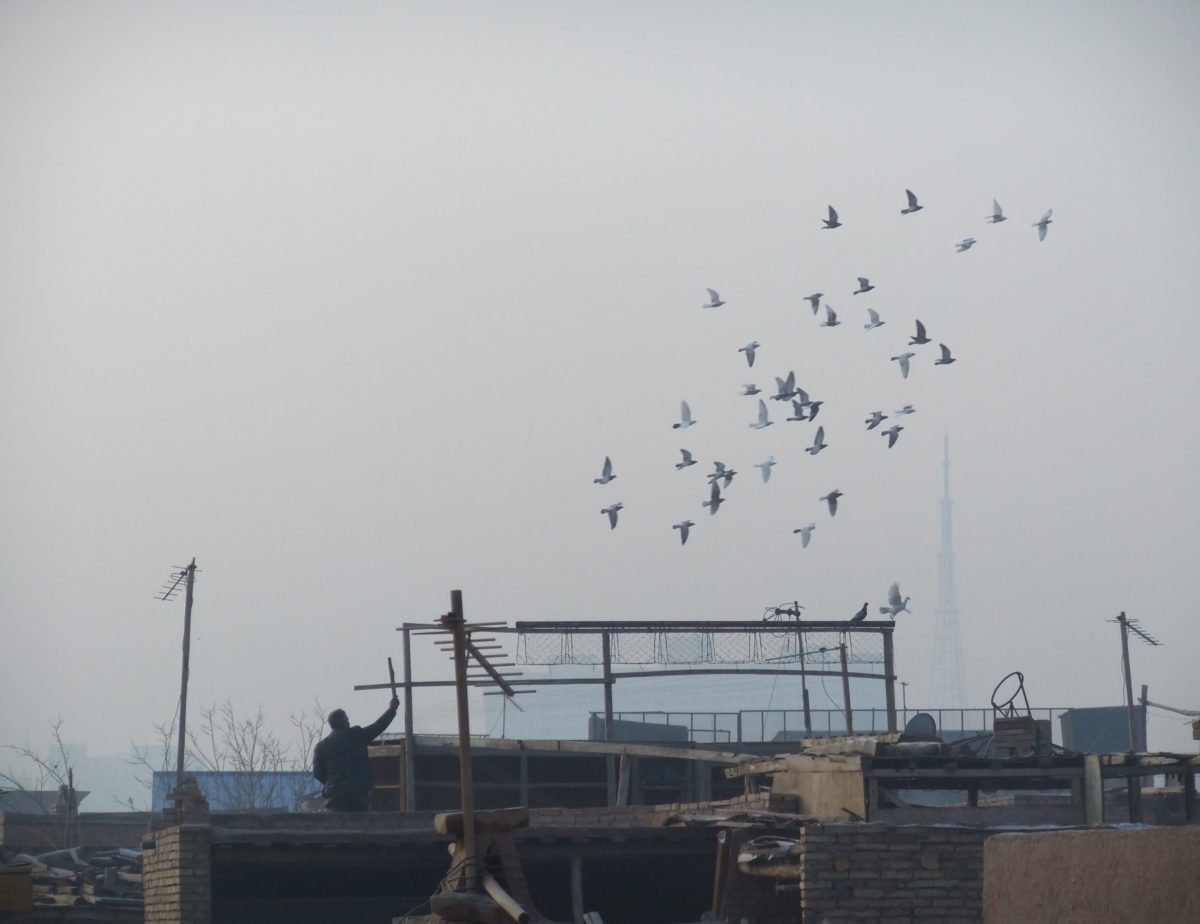Activists call for complete ban on Hikvision, Dahua, and other firms that make surveillance tech used in Xinjiang
The tech companies that have profited off human rights abuses against Uyghurs and other Chinese citizens continue to sell their wares worldwide and get funding from global investors.

In March, the United Nations Special Rapporteur on the promotion and protection of human rights while countering terrorism, Fionnuala Ní Aoláin, presented a report that warned of an alarming increase in the use of “intrusive and high-risk technologies” by governments around the world.
The analysis covered much of the globe, but singled out Xinjiang for special consideration.
The knock on effects of advanced surveillance techniques, first honed through big data collection among the Turkic peoples of North West China, have implications for the International community as Chinese tech companies peddle their wares on the world market.
The global challenge of tech companies such as Hikvision, Huawei, and Dahua is “inescapable”, claimed Uyghur Human Rights Project’s Louisa Greve, speaking at a panel event during the sixty-seventh session of the UN Commission on the Status of Women.
She and the other panelists, who are former Uyghur “re-education camp” detainees, raised not only the surveillance situation in Xinjiang, but flagged up implications for the world if the Beijing-controlled entities remain unchecked.
Nightmare cameras
Hikvision cameras dominated the waking and sleeping hours of Zumrat Dawut, Tursunay Ziyawudun and Mihrigul Tursun, three women who were each detained in Xinjiang for unspecified “crimes” between 2015-2019, and testified alongside Greve.
Despite now being thousands of miles from Xinjiang, the sight of a Hikvision CCTV camera or a Huawei phone still strikes terror in the hearts of the three camp survivors.
In the camps, the cameras observed every whisper, murmur, and mispronounced syllable as these three women struggled to memorise Communist Party anthems. The all-seeing eyes and ears were always on the lookout for minor infringements of camp rules, and directly responsible for every punishment, beating and act of torture. Numerous former detainees have testified about the highly intrusive and constant surveillance of inmates.
The technologies of Hikvision, Huawei and Dahua were developed and fine-tuned using complex data sets trawled from Xinjiang, and they are now being rolled out unchecked around the world, scooping up data. Greve says that their unusually rapid development was and continues to be closely related to human rights atrocities against Tukic peoples in China.
She says that the companies participated in “conducting a genocide” at the behest of the Chinese Communist Party (CCP), but they remain household names in the world of international commerce. “They have global supply chains and a global marketing network,” she says. “We want these companies to pay a price and be prevented from operating in this way to help the Chinese government carry out these atrocities.”
After release, a Huawei companion
Those released from camps were sworn to secrecy, said Zumrat Dawut, and gifted a government-issued Huawei phone to be their constant companion day and night. The former inmates were told to never switch off the phones, not were they allowed to leave them at home, or give them to someone else. The phones were installed with a compulsory “internet police” surveillance app, which could track their every move and every conversation.
Restoring the phone to factory settings was a recipe for further internment. If former inmates stayed at home for too long, they were told to walk around town, and show the surveillance cameras that they were still in circulation. Cars had to be driven every few days to prove the owners hadn’t made a run for it. The amount of gasoline they consumed, changes in their grocery shopping, and numbers of visitors: All this and more had to be accounted for.
Reverse engineering of the app by Human Rights Watch in 2019, proved it was directly linked it to the nerve centre of surveillance in Xinjiang, the Integrated Joint Operations Platform (一体化联合作战平台 ) a mechanism created centrally to join up all the surveillance dots and build a picture of “dangerous” people for special observation or rounding up.
Calls for bans around the world
The U.S. has already banned the import and sale of Chinese telecoms and video surveillance products from Huawei, Hikvision, and Dahua as well as Chinese firms — ZTE, Hytera Communications — over national security concerns.
The U.K. has dipped its toes in the water as far as banning Hikvision and Dahua in government buildings, but stopped short at an outright ban. The all pervasive tech has crept into 60% of public bodies in the U.K., but despite protests in the corridors of power, and expert warnings, British officials are still vacillating, following Hikvision predictions that a dismantling operation would cost £800 million ($996.84 million).
Italian state news investigated Hikvision, and concluded that its cameras in Italy “communicate with China.”
Australia announced it would remove Hikvision’s cameras from Department of Defence buildings. The European Union is wavering: Despite banning the cameras in its Parliament, it has yet to make up its mind completely. Other countries are bringing up the rear in dribs and drabs.
Repressive regimes, on the other hand, have been only too keen to buy up Chinese technology to suppress opposition, round up dissenters, and keep track of political opponents.
The knock on effects of cosying up to China, cooperating with it on infrastructure projects, and taking loans are demonstrated in the so-called “Beijing Effect“, whereby countries investing in China’s technological infrastructure have been found to be more likely to adopt CCP values and governance systems as a result.
Our dystopian future?
A damning recent report by U.K. surveillance chief Fraser Sampson on the proliferation of Chinese cameras throughout the U.K., concluded that people were more worried about “Chinese spy balloons 60,000 feet up in the sky” than the “Chinese cameras 6 feet above our head.” Urging against reliance on Chinese companies obliged to relay information to Beijing, he warned their equipment was fraught with “security and ethical failures.”
In 2019, Time magazine commented that, “China today is a harbinger of what society looks like when surveillance proliferates unchecked.” Examining the good, bad and the ugly of an “explosion” in AI-powered facial-recognition technology, and citing a 2018 Freedom House report, the article described China as a “battleground where the modern surveillance state has reached a nadir, prompting censure from governments and institutions around the globe, but it is also where rebellion against its overreach is being most ferociously fought.”
Louisa Greve of the Uyghur Human Rights Project urges international business to treat the Chinese AI-enabled surveillance-tech services as a “no-go zone.”
“Completely off limits,” she told The China Project: “No sales of hardware or software, no investment through shares or private equity, no research partnerships, pension funds, personal retirement accounts, index funds, university endowments.” She asked: “How can anyone live with themselves if they are trying to earn profits by investing in these ‘genocide-tech’ companies?”
The Uyghur Human Rights Project recently applauded the latest U.S. bill to impose Magnitsky Sanctions on Chinese tech companies Hikvision, Dahua, Tiandy and BGI, for “enabling genocide“.
As for the three women who have experienced first hand the sophisticated monitoring capacity of the advanced systems and their potential to destroy, they are only too aware of the hazards; they live with the lasting trauma every day of their exiled lives






